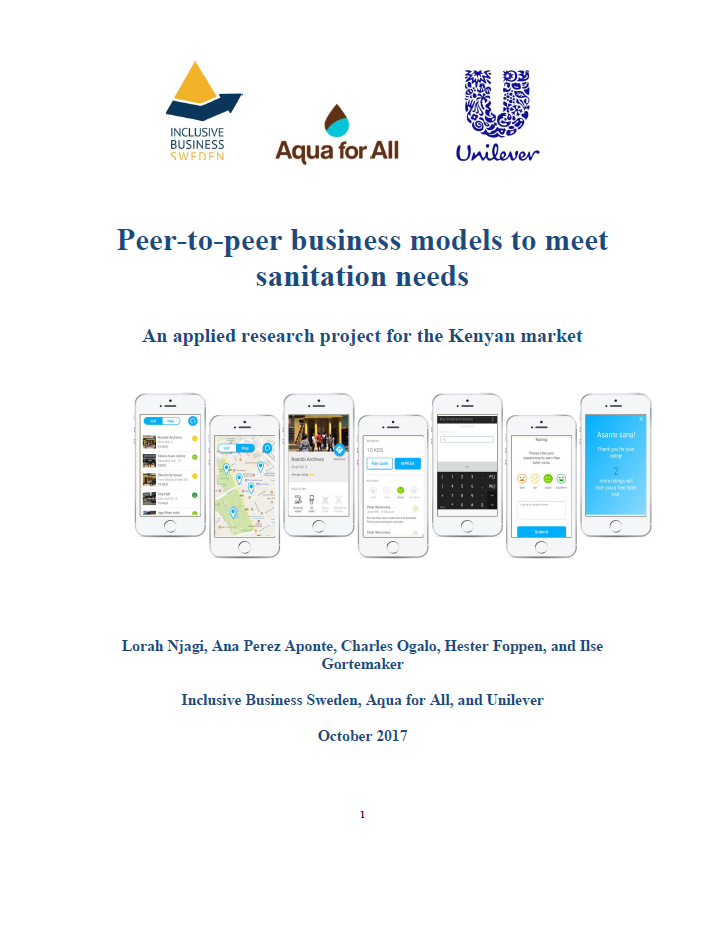Peer-to-peer business models to meet sanitation needs An applied research project for the Kenyan market Njagi, L., Aponte, A.P., Ogalo, C., Foppen, H., and Gortemaker, I. (2017)
Uber, the world’s largest taxi company, owns no vehicles. Airbnb, the world’s largest accommodation provider, owns no real estate. Peer-to-peer (P2P) business models such as these have achieved scale globally, and relatively quickly. These P2P business models provide an organised way for us to collectively share certain resources. Could similar solutions reduce the barriers to sharing of the limited existing sanitation facilities in low income countries?
During 2016 and 2017 Inclusive Business Sweden and Aqua for All, supported by Unilever and funded by Transform, carried out a project named ‘Peer-to-peer Business Models to Meet Sanitation Needs’ to explore this possibility. The project explored the potential of utilising P2P technologies or models to improve sharing of existing sanitation services in developing markets where access to sanitation is low, while mobile and smartphone penetration is increasing. We looked at common themes of P2P business models (e.g. use of a GPS enabled mapping system, use of a transparent mobile payment system and a digital review system) and how they could help address this challenge.
Bibliographic information
Njagi, L., Aponte, A.P., Ogalo, C., Foppen, H., and Gortemaker, I. (2017). Peer-to-peer business models to meet sanitation needs An applied research project for the Kenyan market Inclusive Business Sweden, Aqua for All, and Unilever
Filter / Tags
Urban (entire city)Politicians and local decision makersEnglish

